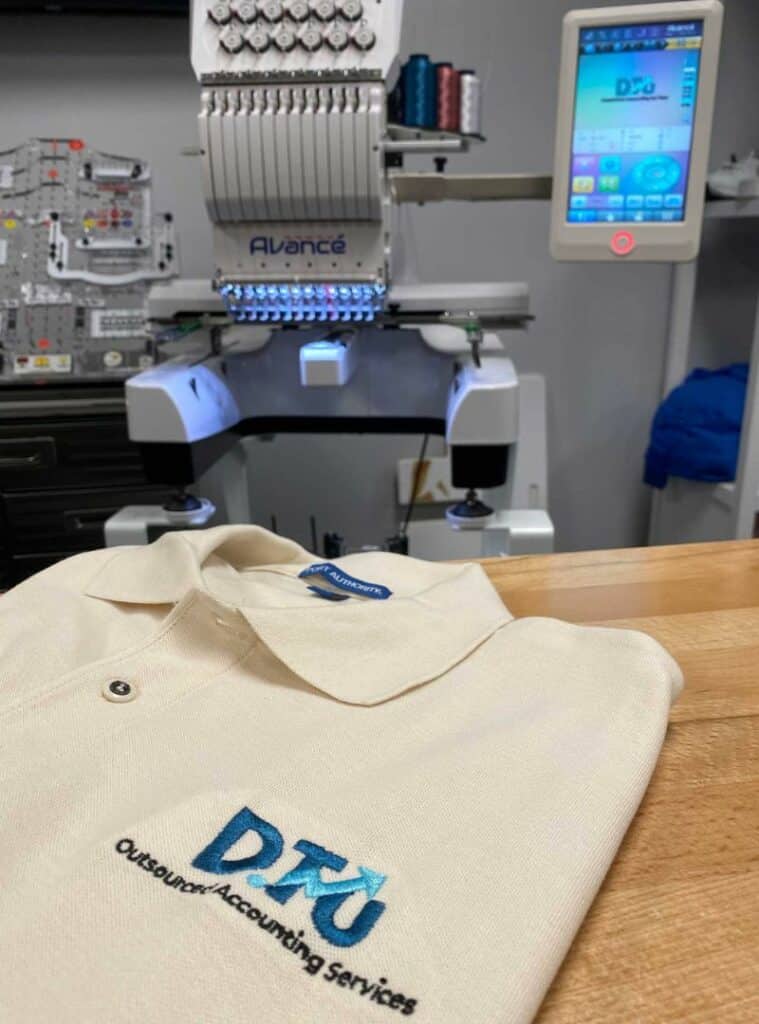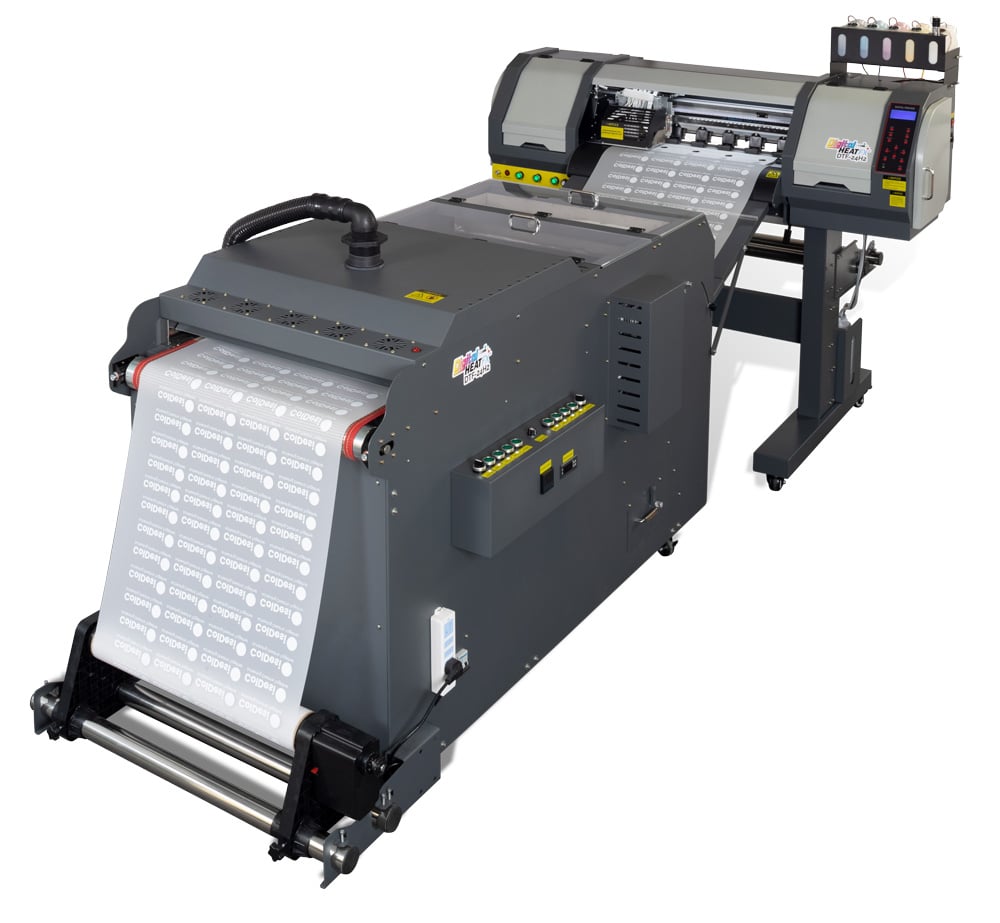You’ve decided to start an embroidery business. You’ve research machines and supplies, and you’ve got a space set aside to do your work in. To help you ensure you’re successful we want to highlight some of the common mistakes that people make when starting a business, and how you can avoid them.
What do you need to start a business?
What are all the pieces you need in place before even starting your business? How do you plan on handling your bills and accounting? Do you have a business bank account? Are there any legal requirements to start a business in your state?
Take the time to consult with people, perhaps a lawyer and an accountant, or even someone else who’s started a business in your community before. Offer to buy them a coffee and ask if they can give you some advice on what you need to look into before you start.
Wearing every hat
A lot of embroidery businesses start out home-based. And so often times you are the business. You’re the salesperson, you’re the marketer, you’re the accountant, you’re the person making the product. What you need to understand is that you can’t be great at all those jobs, and you probably don’t have time to get great at all those jobs.

Even as a small business you may need to make decisions about what can you outsource. We talk about this more in-depth in our blog post on Working On Your Business, but essentially there are jobs that will benefit your business to pass over to an expert. Things like your accounting – you can still manage your client’s invoices and any of your expenses, but pass along those receipts to an accountant or CPA, so that at the end of the year when tax time rolls around you can be sure that your taxes are done right and nothing is missing.
Perhaps you hire someone to build your website, or to help you manage your social media. For all the roles that encompass a business, there is someone out there that specializes in one particular thing. If you are struggling with it, or want the task taken off your plate so you can spend more time creating product, you can find people for those roles.
Cash Flow
Cash flow is so important to a business. It can kill your business if you’re not managing it properly. When starting your business you may have budgeted out your expenses for the embroidery machine, some blanks and supplies, perhaps even your first few month wages, and some marketing. But there are plenty of other costs to consider. Even something like business cards.

What’s going to be most important however is knowing whether your business can financially handle a larger order. Let’s say you suddenly get a corporate deal, and they want 300 jackets for their employees. You may not get their full payment right away (though we highly recommend getting a 50% deposit). Do you have funds to be able to buy those jackets and the extra thread and backing that you’ll need? You don’t want to have to put yourself in a position where you’re putting it on a credit card, hoping that the client will make the payment right away so that you’re not going to get loaded with interest on that purchase.
Before you quit your day job and start running an embroidery business, write out your expenses, including your own personal wage for the first 90 days of business. Don’t expect that you’ll be making any profit during this time (if you do awesome!). Can your business stay comfortably afloat for 90 days? Giving yourself this time frame allows you to go out and work your business, make contacts, learn how to use your equipment, without having to stress over the financial side of things.
Practice makes permanent
Just like any other trade or skill you have to take the time to learn. You can’t simply buy an embroidery machine and start selling product right away. In doing that you’ll likely find you’re making mistakes when projects, and in turn you’ll either get frustrated because everything takes too long, or doesn’t look good. At worst you waste a lot of money doing an order for someone that you have to completely redo.
Before you even start advertising your business take a few weeks to learn how your machine works. What thread works best. Are there any blanks that you shouldn’t use on your machine? Ask your vendor for advice, ask your blank supplier, watch videos.
The more you practice the better you’ll get at understanding the nuances of your machine and your blanks, so that you are producing a product you can be proud of.
Time Management
For anyone who is switching from a more corporate or scheduled job to an entrepreneurship this can be one of the biggest hurdles to overcome. Because your first though may be that your day can be flexible, fluid, and you can work when you want. You have to treat this like a business and you have to schedule out your day. Perhaps you do want to start your day at 10am and then work until 5 or 6, or you want to take a break from 3-6 when your kids get home from school and then work again from 6-8. You have to find a schedule that works for you, but it has to be a schedule.
Especially if there are tasks you don’t enjoy doing. Make yourself a daily plan. Perhaps from 9-10am each day you’re watching a video or listening to a podcast that gives you tips on how to build a successful business, or how to use your embroidery machine. Then from 10-12 you’re practicing. From 1-2 you’re making calls or going out to talk to local businesses. Write out all the tasks you need to be doing, and give yourself a schedule. There are some things you don’t have to do every day (social media, making calls) and then other things you do (responding to emails, creating product). After a while you’ll get more comfortable with each of the tasks and how long they take. There are timer tools out there, like Toggl, that will actually help you track your time and give you summaries at the end of the week and month.
Over promising
You want to meet your customer’s expectations and requests, but that’s not always going to be possible, or financially sound. If you don’t feel comfortable making a promise to a customer, don’t. It’s always better to under promise and then over deliver.
As an example, a customer asks you if their 300 shirt order can be ready by Friday, and it’s already Monday afternoon. How long is it going to take for the shirts to arrive? How long will it take you to embroider 300 shirts? Overnight shipping is not a good business decision, often the shipping cost outweighs the profits (unless the client is willing to add on the extra shipping cost to their order). It may be worth it to work a little bit of overtime to get those shirts done, but you’re also dealing with things that are outside of your control. Have a standard turn around time, that way if you deliver early the customer is thrilled, rather than delivering late and having unhappy customers.
Understanding the wave
In any business there is going to be downtime. You may see a lot of orders coming in and then you might find business is a little lighter. Or perhaps your niche market is quite seasonal. Your downtime should be just as productive. You spend an extra hour each day going out to businesses and making calls. You look for trade shows that are coming up. You get creative with your marketing efforts. You practice on your machine, perhaps with a new blank, so that you can add it to your offerings.
Your can and will have a successful embroidery business if you take the time to prepare, learn how to use your embroidery machine, and work it like any other full-time job. Ask questions, take the time to plan, and have fun!






